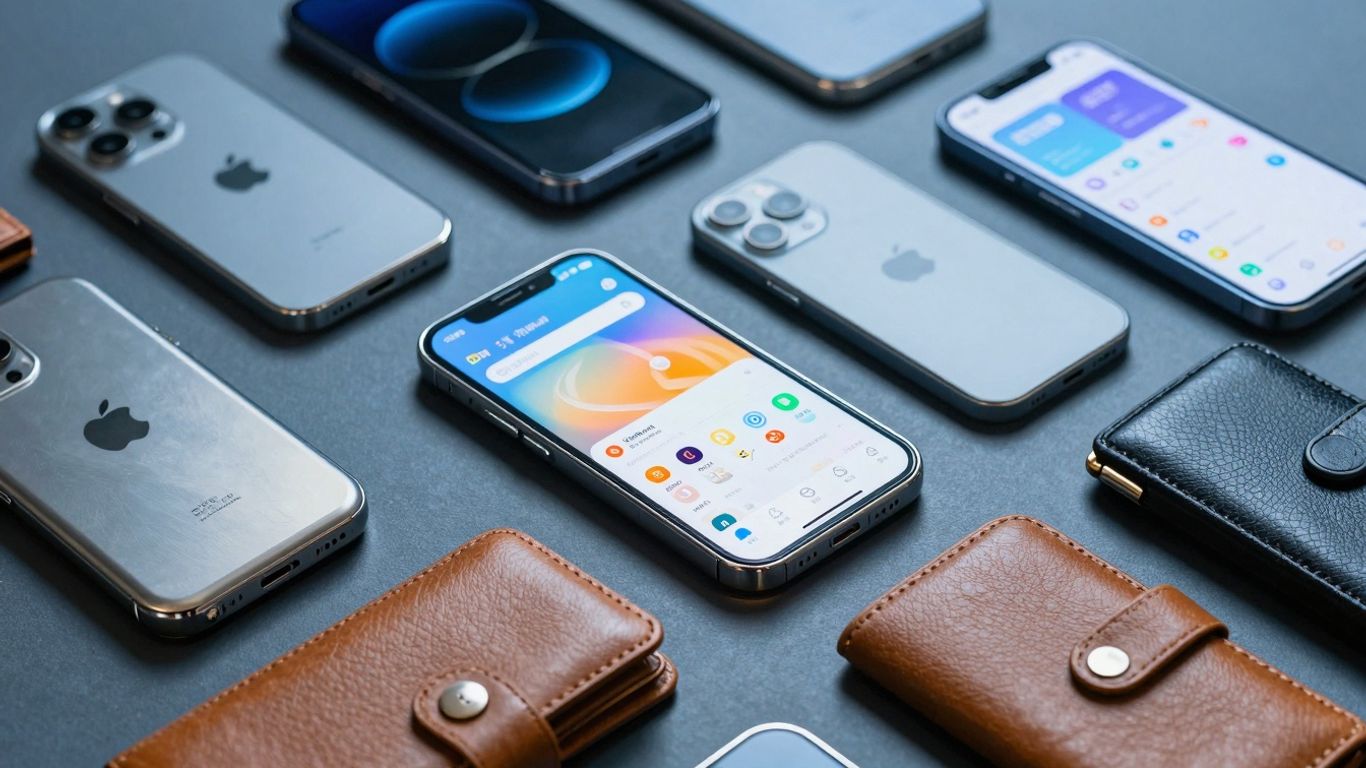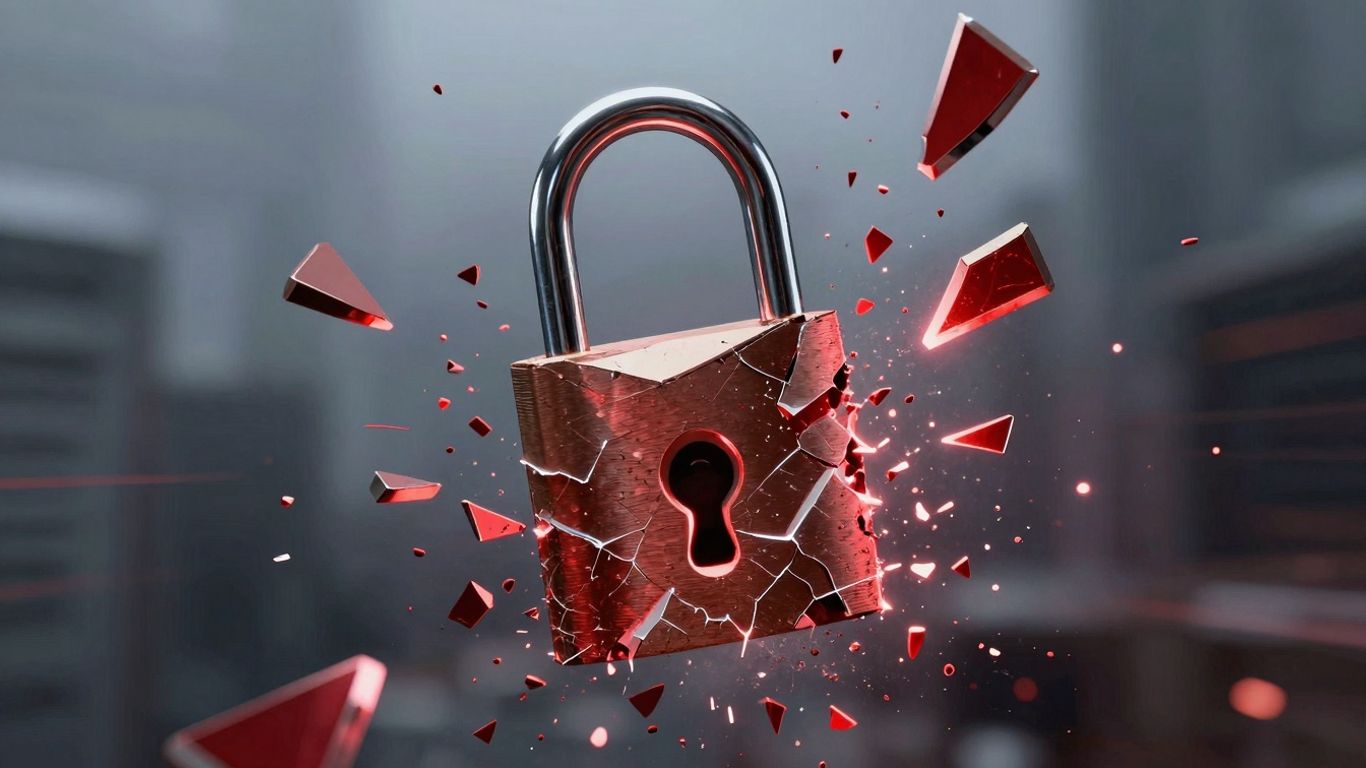[ newsletter ]
Stay ahead of Web3 threats—subscribe to our newsletter for the latest in blockchain security insights and updates.
Thank you! Your submission has been received!
Oops! Something went wrong. Please try again.
Discover the best web3 wallet Reddit community picks for 2025. Compare top software, hardware, and all-in-one solutions for your crypto needs.





Figuring out the best web3 wallet reddit community picks can feel like a maze sometimes. With so many options popping up, it's tough to know which one actually fits what you're trying to do with your crypto. Whether you're just starting out or you've been around the block a few times, picking the right wallet is a big deal for keeping your digital stuff safe and sound. We looked at what people are talking about on Reddit to help you find a wallet that works for you.
Alright, so you're looking to jump into the wild world of Web3, and that means you need a digital wallet. Think of it like your personal bank account, but for all things crypto and decentralized. It's not just about storing coins, though; it's your key to interacting with a whole new internet. But before you just grab the first shiny wallet you see, let's figure out what you actually need. This isn't a one-size-fits-all situation, and picking the right one from the get-go can save you a lot of headaches later on.
So, what are you planning to do with your crypto? Are you looking to just hold onto some Bitcoin and Ethereum for the long haul, or are you aiming to get into the nitty-gritty of decentralized finance (DeFi)? If you're interested in staking your coins to earn rewards, or maybe lending them out on a decentralized platform, you'll need a wallet that plays nice with those specific applications. Some wallets are better suited for these more active financial strategies than others. For instance, if you plan on frequently swapping tokens on decentralized exchanges (DEXs) or participating in yield farming, you'll want a wallet with a built-in dApp browser and good integration with those services. It makes the whole process way smoother.
Choosing a wallet that aligns with your primary financial activities in Web3 means you're setting yourself up for a more efficient and enjoyable experience. Don't pick a wallet designed for serious DeFi if you just want to buy and hold.
This is probably the most important part. With great power comes great responsibility, right? Web3 wallets give you control over your private keys, which means you have full ownership of your assets. But that also means if you lose your keys or seed phrase, your funds could be gone forever. So, how much risk are you comfortable with? Are you the type who wants absolute control, even if it means a steeper learning curve for security? Or do you prefer a bit more hand-holding, perhaps with some built-in safety nets?
Here's a quick rundown of what to consider:
Where do you see yourself interacting with Web3 most often? Are you usually on your phone, checking things on the go? Or do you prefer sitting down at your computer for more involved tasks? This really boils down to convenience and how you plan to use your wallet day-to-day.
Think about your daily routine. If you're always on the move, a clunky desktop-only wallet will just get in the way. Conversely, if you're doing serious DeFi work, trying to manage complex interactions solely through a mobile app might feel cramped.

When you're diving into the world of Web3, software wallets are often the first port of call. They're generally free, easy to set up, and live right on your computer or phone, making them super convenient for everyday use. Reddit users talk about a few standouts that keep popping up in discussions, especially for folks who want to interact with decentralized applications (dApps) or manage a variety of tokens.
MetaMask is probably the most talked-about software wallet on Reddit, and for good reason. It started out as a browser extension, primarily for Chrome and Firefox, and it's become the default way many people access the Ethereum blockchain and all the dApps built on it. Think of it as your digital passport to the Ethereum ecosystem. You can use it to store ETH, ERC-20 tokens, and even NFTs. Plus, it has a built-in browser that lets you connect directly to dApps without leaving the wallet interface. This makes interacting with DeFi protocols, NFT marketplaces, and blockchain games a breeze.
The convenience of MetaMask is hard to beat, especially when you're exploring new dApps. Just remember that with great convenience comes the responsibility of safeguarding your own private keys.
If you're more of a mobile-first person, Trust Wallet is a name you'll see a lot on Reddit. It's a popular mobile app that supports a huge number of blockchains and tokens, not just Ethereum. This makes it a great choice if you hold a variety of cryptocurrencies across different networks. Trust Wallet also has strong support for NFTs, allowing you to view and manage your digital collectibles right from your phone. It's known for being straightforward to set up and use, which appeals to a broad range of users.
While MetaMask and Trust Wallet often get the spotlight for Ethereum and altcoins, BlueWallet is a frequent recommendation on Reddit for Bitcoin enthusiasts. It's a mobile-first wallet that offers a good balance of user-friendliness and advanced features. What sets BlueWallet apart is its focus on Bitcoin and its support for both custodial and non-custodial options, as well as advanced features like watch-only wallets and multisig setups. This flexibility appeals to users who want more control and customization over their Bitcoin storage.
When you're dealing with significant amounts of crypto, or just want that extra peace of mind, hardware wallets are the way to go. These devices keep your private keys completely offline, meaning they're immune to online threats like malware or phishing attacks. Think of them as a physical vault for your digital assets. They require you to physically confirm transactions on the device itself, adding a robust layer of security that software wallets just can't match.
The Ledger Flex is a pretty slick device. It's got this nice big touchscreen, making it easy to see what you're approving. What really sets it apart is its security chip, which is certified at a really high level, similar to what's used in passports. This thing supports a ton of different coins and tokens, over 10,000 across more than 300 blockchains, so you're not limited if you're into a lot of different altcoins. Plus, it handles NFTs and can connect to DeFi apps using WalletConnect. It's a bit pricier, sure, but for serious altcoin staking and broad token support, it's a solid pick.
Trezor was one of the first hardware wallets out there, and they've stuck to their guns on security and privacy. The Trezor Model One is a really affordable entry point if you're new to hardware wallets. It forces you to confirm everything right on the device, and you set up a PIN or passphrase. It’s not as flashy as some newer models, and it doesn't support as many coins as others, but its focus on keeping things simple and secure is why many people trust it. For long-term storage of your Bitcoin or Ethereum, it's a reliable choice.
Tangem wallets are pretty unique because they look like credit cards and use NFC to connect to your phone. No cables, no batteries needed, just tap and go. The security chip inside is top-notch, and the company has had its firmware checked by independent security firms. It's a really neat, minimalist approach to hardware security. While it might not support as many coins as some of the bigger players, and some folks prefer more open-source options, its ease of use and strong security make it a compelling alternative, especially for those who want something discreet and simple. You can find out more about how these wallets protect your assets on this page.
Keeping your private keys safe is the absolute number one priority. Hardware wallets are designed to do just that by keeping those keys isolated from your internet-connected computer or phone.
Sometimes, you just want a wallet that does it all, right? You're tired of juggling different apps for different tasks, and you're looking for something that can handle your crypto, NFTs, and maybe even let you dabble in some DeFi without a whole lot of fuss. That's where these all-in-one solutions come in. They aim to be your central hub for pretty much everything Web3.
This one's often talked about as the do-it-all option. It's designed to be super flexible, letting you manage a bunch of different cryptocurrencies and connect to various decentralized applications (dApps). Think of it as your main gateway to the whole Web3 world. It's got a lot of features packed in, which can be great if you're into a bit of everything.
These wallets try to simplify the complex world of Web3 by bringing many functions together. The goal is to make it easier for people to use different blockchain services without needing to be a tech expert.
If you're already using Binance for your trading, their wallet might feel like a natural fit. It often comes with features that make it easy to move funds between your exchange account and your wallet. This can be handy for quick trades or accessing features on the Binance ecosystem.
OKX Wallet is another player that tries to offer a good mix of user-friendliness and powerful features. It's known for being accessible, even if you're not super deep into crypto yet, but it also provides tools that more experienced users will appreciate. It's a solid choice if you want a wallet that grows with you.

Alright, so you're looking for a Web3 wallet and wondering what actually matters, right? It's not just about holding your crypto; it's about how you interact with the whole decentralized world. Let's break down the important stuff.
This is a big one, folks. Non-custodial means you hold the keys to your crypto kingdom. No bank, no exchange, just you. Your wallet generates a seed phrase – usually 12 or 24 words. This phrase is your golden ticket; guard it like your life depends on it, because your crypto does. If you lose it, and your device breaks, your funds are gone. But the flip side is total control. You're not relying on anyone else to access your assets. It’s the core idea behind Web3, really. You can find more about how these wallets work on pages like this one about Web3 wallets.
Modern wallets are way more than just a place to stash your coins. Many let you stake your crypto directly from the wallet, earning you passive income. Think of it like earning interest, but on the blockchain. Swapping is also super common – trading one crypto for another without leaving your wallet. This is usually done through built-in decentralized exchange (DEX) aggregators. And then there's the dApp browser. This is your portal to decentralized applications – games, marketplaces, lending platforms, you name it. Being able to connect and interact with these directly from your wallet is a game-changer.
Let's be real, crypto can be confusing. A wallet with a clean, easy-to-understand interface makes a huge difference, especially when you're starting out. You don't want to be fumbling around trying to figure out how to send a transaction or check your balance. Good wallets also provide educational materials. They might have FAQs, tutorials, or links to guides that explain how things work. This is super helpful for understanding security best practices and how to use the wallet's features safely. It’s like having a friendly guide in a new city.
Choosing a wallet is a personal journey. What works for a seasoned DeFi trader might be overkill for someone just dipping their toes into NFTs. Always consider your comfort level with technology and the security implications of each feature.
So, you've been scrolling through Reddit, right? It's a goldmine for crypto talk, and when it comes to wallets, people have strong opinions. It can feel a bit like trying to pick a favorite ice cream flavor – so many options, and everyone swears theirs is the best. But really, it boils down to what you're doing with your crypto and how much you want to tinker.
This is where most people land. You want a wallet that does what you need it to do without making you feel like you need a computer science degree. For example, if you're just dipping your toes in with some Bitcoin and Ethereum, you probably don't need a wallet with a million advanced settings. Something straightforward, like Exodus, might be perfect. It’s got a clean look and handles the basics well. On the flip side, if you're deep into DeFi, you might want something with more bells and whistles, even if it takes a little longer to get the hang of it. It’s a trade-off, for sure.
What you hold matters. If you're all-in on Bitcoin, you'll find a lot of love on Reddit for wallets that focus specifically on BTC, like Sparrow. They often have features tailored just for Bitcoin users. But if you're spread across many different coins and tokens, especially newer ones or those on different blockchains, you'll need a wallet that plays nice with a wider variety. This is where multi-chain support becomes a big deal. You don't want to be stuck having to use a different wallet for every single asset.
Think about how you actually use crypto. Are you constantly swapping tokens on decentralized exchanges? Do you want to stake your coins to earn rewards? Or are you mostly just holding and want the absolute best security? For staking, some users really like wallets that let you do it right from the app, keeping your keys safe. For active traders, speed and low fees are probably more important. It's about matching the wallet's strengths to your personal crypto routine.
Ultimately, the 'best' wallet is the one that makes you feel comfortable and secure while letting you interact with the crypto world in the way you want to. Don't be afraid to try a couple out with small amounts first.
Here's a quick look at how some popular choices stack up based on common user needs:
So, we've looked at a bunch of wallets that Reddit users seem to like for 2025. It’s pretty clear there isn't one single wallet that’s perfect for everyone. Whether you're all about keeping things simple on your phone with something like Trust Wallet, or you prefer the serious security of a hardware wallet like Ledger Flex, or maybe you want an all-in-one tool like Best Wallet for staking and more, the choice really comes down to what you're doing with your crypto. Take a moment to think about what matters most to you – ease of use, security, or maybe specific features – and pick the wallet that fits your own crypto journey. Happy stacking!
Think of a Web3 wallet as your digital passport for the decentralized internet. It's a special app or device that lets you store, send, and receive digital money like Bitcoin and Ethereum. More importantly, it's how you connect to and interact with all sorts of cool online services, like games, marketplaces, and ways to earn rewards with your crypto, all without needing a middleman.
A software wallet lives on your computer or phone, like MetaMask or Trust Wallet. They're super convenient for everyday use. A hardware wallet, like a Ledger or Trezor, is a physical device that keeps your digital money extra safe by storing your private keys offline, making it much harder for hackers to get to.
It's generally safe if you're careful! Wallets like MetaMask let you connect to online services, but they use a clever system where your main funds stay secure, and you only approve specific actions. Always double-check what you're approving, and never share your secret recovery phrase with anyone. For maximum safety, especially with large amounts, a hardware wallet is the best bet.
A non-custodial wallet means YOU are in charge of your digital money and your secret keys. No company can access or control your funds. This gives you total freedom but also means you're responsible for keeping your secret recovery phrase super safe. If you lose it, you lose your crypto.
Many wallets support a wide range of cryptocurrencies. For example, Trust Wallet and Ledger are known for supporting many different coins and tokens. When picking, check if the wallet supports the specific coins you own or plan to buy. Some wallets are better for Bitcoin, while others shine with Ethereum and its related tokens.
Staking is like earning interest on your crypto by helping to support a blockchain network. Some wallets, like Best Wallet or Trust Wallet, have built-in features that let you stake your crypto directly from the app. This means you can earn rewards without having to move your coins to a separate, potentially less secure, platform.


